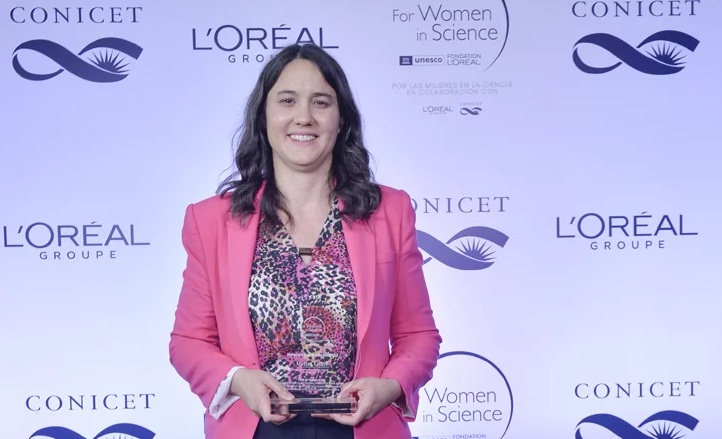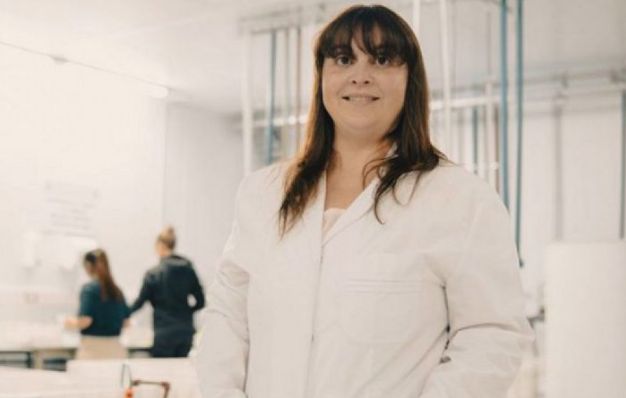Melisa Olave is an Argentine researcher with a bachelor’s and Ph.D. in Biological Sciences. Her research focuses primarily on evolutionary biology, with her main area of study being the genomics and phylogeography of Patagonia’s biodiversity.
The Argentine scientist devotes her work to animal species diversity and its relation to conservation practices. Olave is affiliated with various scientific institutions and has dedicated her professional career to the development of evolutionary biology, becoming one of the pioneers in this field in Argentina.
Olave and her first steps in the scientific field
Olave first earned her Bachelor’s Degree in Biological Sciences at the National University of Patagonia San Juan Bosco, located in the province of Chubut, Argentina.
Throughout her academic journey, the Argentine researcher was awarded both the Fulbright Scholarship to study at the University of Michigan, USA, and the Alexander von Humboldt Foundation Fellowship to continue her training at the University of Konstanz, Germany.
Within the field of biology, Olave specializes in evolutionary biology—a branch of science focused on studying changes in living organisms over time and their relationships with other species.
Within evolutionary biology, Olave focuses on areas such as evolution, phylogeography, and phylogenetics, among others.
Regarding her studies related to Argentina, her research primarily centers on conservation genomics and the phylogeography of Patagonia.
Olave and her scientific career
Both conservation genomics and the phylogeography of Patagonia are disciplines related to biodiversity, meaning the variety of animal and plant species present in a specific environment.
Conservation genomics applies genetic theories and practices to species conservation, while phylogeography refers to the study of the geographical distribution of living organisms and the historical processes that shaped their current locations.
Olave conducts her research as part of Argentina’s National Scientific and Technical Research Council (CONICET) and its Mendoza Scientific and Technological Center (CCT Mendoza). The CCT Mendoza, part of CONICET, specializes in scientific and technological research, particularly those carried out in the province of Mendoza.
Additionally, she collaborates with IADIZA (Argentine Institute for Arid Zones Research), which focuses on research concerning drylands and various topics associated with these ecosystems.
Its goals include promoting sustainability in drylands, increasing knowledge about these regions, and communicating relevant scientific research. Olave’s research efforts have earned her prestigious recognition.
The L’Oréal – UNESCO Award
Olave has been awarded the L’Oréal – UNESCO “For Women in Science” Prize.
This award aims to promote the role of women in the scientific field and raise the visibility of their research efforts.
The Argentine researcher was recognized in the Fellowship category for her project titled “Urgent scientific foundations to define effective biodiversity conservation strategies in the face of the sixth mass extinction.”
The goal of her work is biodiversity preservation and the development of public policies related to conservation. The project contributes to ecosystem stability and the protection of species diversity.
In addition to this project, the Argentine researcher has published several scientific papers and participated in various conferences and scientific events.
Her publications cover a range of topics, including the description of new species, climate change and species hybridization, and the molecular phylogeny of various species.
The scientific meetings in which she has participated span disciplines such as evolutionary biology, evolution, and herpetology.
Teaching and leadership in evolutionary biology
Besides her scientific work, Olave is also involved in teaching.
She is a professor at the Faculty of Exact and Natural Sciences of the National University of Cuyo.
Olave is regarded as one of the pioneers of evolutionary biology in Argentina. Through her research, she has expanded the reach of this scientific discipline within the country.
Recognized by UNESCO and known for advocating for women in science, Olave stands out as a leading Argentine researcher in the national scientific landscape.
In terms of promoting evolutionary biology in Argentina, the country has established the Argentine Society of Evolutionary Biology.
This society aims to promote the discipline in the region and represent Argentina at international scientific events.




